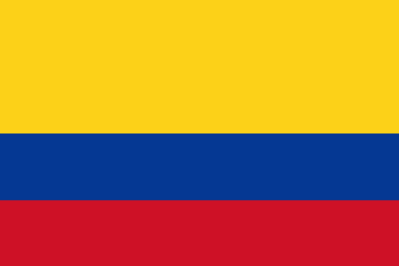Colombia
Colombia


Colombia, a country decorated with beautiful Caribbean beaches, verdant rainforests, and thriving cities, also boasts a fascinating past. Colombia’s history is a monument to the strength and diversity of its people, from the vibrant indigenous cultures that existed long before European colonization to the intricate politics of colonial control and the bloody struggle for freedom.
Indigenous Civilizations Thriving in the Age Before European Contact
Incredible indigenous cultures left an indelible influence on Colombia’s pre-Columbian past. The Andean Muisca people were particularly influential. The Muisca culture flourished for centuries before the Spanish conquistadors arrived, leaving behind a rich cultural history that is still felt today. They are famous for their goldworking talents and the holy rite of El Dorado.
The Age of the Conquistadors, or the Spanish Conquest
Gonzalo Jiménez de Quesada and others spearheaded the Spanish invasion of Colombia in the early 16th century. Their explorations paved the way for Spanish colonial power in the area, and Santa Fe de Bogotá was founded as a result. The influence of the conquest is still felt today in Colombia’s language, religion, and social systems.
The Struggle for Freedom and the Formation of a New Nation
Simón Bolvar’s inspirational leadership shaped Colombia’s fight for freedom from Spanish colonial domination. Bolvar’s military actions and strategic partnerships were critical in achieving independence for Colombia and other South American countries. Colombia’s national identity, democratic institutions, and unwavering dedication all bear the echoes of this time period.
Ancient indigenous civilizations, the aftershocks of the Spanish invasion, and the relentless struggle of freedom all contribute to the rich tapestry that is Colombia’s history. This historical excursion sheds light on the tenacity and cultural variety that characterize modern Colombia. From the Muisca’s magical ceremonies to Simón Bolvar’s creative leadership, Colombia’s past may teach us about the country’s thriving present.
Colombia, a country rich in culture and diversity, has a troubled past connected to slavery. This article delves into the history of slavery in Colombia, from its inception to the perspectives of those who were slaves to the fight for emancipation and beyond. Understanding this history helps illuminate the struggle against racism and the never-ending quest for equality.
The Colombian Slave Trade and Its Origins
The encomiendas system of exploitation and slavery was founded by the Spanish conquistadors as they arrived in Colombia in the early 16th century. The indigenous population was subjected to the worst aspects of colonialism, including forced labor, brutality, and the loss of their cultural identity.
Slavery in Africa and the Slave Trade to the New World
Slaves from Africa were brought to Colombia in large numbers to meet the country’s labor needs. These people were forced to work on plantations in deplorable circumstances and denied access to basic necessities. African culture and history have had an important role in the development of Colombian society.
Freedom Fighters and Abolitionist Movements
The Palenques, or Maroon settlements, were instrumental in the abolitionist movement in Colombia. Those who had fled slavery established these villages, which thrived as self-sufficient outposts. As the first African-owned city in the Americas, San Basilio de Palenque represents strength and defiance.
The Path to Independence Through Abolition
Following the lead of other American countries, Colombia abolished slavery formally in 1851. This was a monumental achievement for the cause of Afro-Colombian liberation and equality. However, racism and economic inequality, both of which have their roots in the country’s slave-owning past, persist in modern-day Colombia.
The struggles of the enslaved people of Colombia throughout history are an inspiration. Knowing this background helps us address the enduring structural problems, while giving credit to the tenacity of Afro-Columbian populations.
Hola, Gracias, Amor, Comida, Casa, Familia, Trabajo, Escuela, Calle, Tiempo, Dinero, Amigo, Feliz, Fiesta, Salud, Vida, Viaje, Música, Película, Deporte, Juego, Baile, Café, Río, Mar, Montaña, Naturaleza, Playa, Sol, Lluvia, Agua, Aire, Fuego, Noche, Día, Mañana, Tarde, Tarjeta, Libro, Foto, Arte, Palabra, Idea, Problema, Solución, Pregunta, Respuesta, Persona, Niño, Hombre, Mujer, País, Ciudad, Barrio, Carro, Moto, Bicicleta, Avión, Tren, Camino, Mercado, Compras, Restaurante, Cena, Desayuno, Almuerzo, Fruta, Verdura, Carne, Pollo, Pescado, Arroz, Frijoles, Pan, Tortilla, Queso, Leche, Huevos, Azúcar, Sal, Aceite, Mantequilla, Chocolate, Postre, Tarta, Café, Té, Agua, Refresco, Cerveza, Vino, Brindis, Fiesta, Cumpleaños, Navidad, Año Nuevo, Vacaciones, Diversión, Juego, Deporte, Correr, Nadar, Saltar, Bailar, Cantar, Leer, Escribir, Estudiar, Trabajar, Descansar, Dormir, Soñar, Despertar, Caminar, Viajar, Conducir, Llamar, Enviar, Recibir, Abrir, Cerrar, Comer, Beber, Cocinar, Limpiar, Bañarse, Vestirse, Comprar, Vender, Mirar, Escuchar, Hablar, Entender, Ayudar, Amar, Sonreír, Llorar, Reír, Gritar, Silencio, Felicidad, Tristeza, Emoción, Amistad, Amor, and Alegría












You must be logged in to post a comment Login